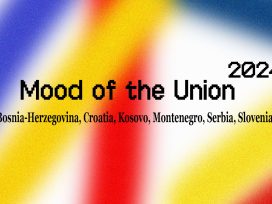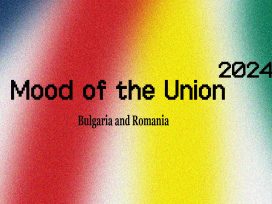On 11 March 2013, the Hungarian parliament approved substantial changes to the constitution that limit civil liberties and the powers of the constitutional court. The modifications were the initiative of the national populist Fidesz party, which controlled (and is still controlling) the majority of seats in parliament. Among the 22 articles modified, those that stand out legitimize limitations to freedom of expression, criminalize the homeless if they sleep on the street, impose a ten-year emigration ban on Hungarian graduates and subvert the constitutive principles of liberal democracy such as the separation of powers and constitutional control of the laws. Indeed, one of the modified articles weakens the constitutional court’s capacity to influence the content of fundamental law – including that in the process of being amended – and revokes the validity of its preceding verdicts. Representatives of the European Union did raise concerns but, lamentably, the EU does not have a procedure that enables the EU to interfere in domestic politics when the latter take turns that are unfriendly to constitutional democracy (Müller 2013). Thus Viktor Orban, leader of the majority and the main protagonist of the constitutional reform, dismissed the EU’s concerns with the following phrase, uttered at the beginning of the parliamentary session during which the vote for the new constitution took place: “People worry about bills, not the constitution”.

A few months before, on 20 October 2012, citizens in Iceland answered positively to an advisory referendum concerning a new draft constitution, a decision that came after a rich and open process of debates involving civil associations and ordinary citizens, via Internet or in face-to-face meetings. The text of the constitution was the product of a radically democratic process that was not piloted by a parliamentary majority. In 2009, a year after the financial crisis blew up that grounded the Icelandic economy, civil society organizations took the initiative of forming an assembly (the majority drawn at random) to discuss and suggest points of constitutional reform. In June 2010, the Icelandic parliament, Althingi, passed Act No. 90/2010, establishing a consultative constitutional assembly charged with the task of revising the constitution. The aim was to involve citizens in the making of a new constitution, partly through the method of crowdsourcing. Two institutions were established: a national forum of 950 Icelandic citizens selected mainly by lot agreed that a new constitution was needed; and a constitutional council of 25 members, elected by universal suffrage. However, parliamentarians and members of political parties were not permitted to run as candidates and none of the 25 elected to the council were politicians by profession. This council approved the new charter after directly discussing it with citizens via Facebook and Twitter. “The story of the Icelandic constitutional ‘revolution from below’ is clearly a unique but at the same time conflictive process (which seems currently stalled), raising complex questions about constitutional change and innovation. A good part of the thrust for the political and constitutional renewal came from the Icelandic population, that is, from individual dissenting citizens, intellectuals and civic organizations” (Bergsson and Blokker, 2013).
These two very different stories took place in Europe, a continent wracked by economic and financial crisis of an intensity and scale not seen since democracy reshaped the European order after the Second World War; yet also a continent that is today the school of challenging and profound political transformations. Moreover, these two divergent stories testify to the schizophrenic condition in which democracy finds itself. Contemporary democracies are witnessing a striking paradox: the democratic political system enjoys the support of public opinion and even a universal allure (the same Hungarian reforms were propagandized in the name of defending “Hungarian democracy”), and yet, its existing mechanisms are under pressure and subject to criticism, principally as a result of a decline in trust. None dares to declare himself or herself a non-democrat or an anti-democratic, yet the translation of democracy into an object of ideological faith risks doing democracy a disservice. The Icelandic citizens, like the Hungarians, were motivated in their desire to revise their constitutions by a powerful dissatisfaction with how institutions functioned, how politicians operated and how decisions were made. They confronted their existing democracies with accusations (backed by evidence) of corruption, inefficiency, the squandering of public resources, the incompetence of politicians and, above all, the elected systematically ignoring the opinions of citizens. Reconciling idealized democracy with people’s mistrust in practiced democracy is certainly no easy task. These are signs of a serious decline in the democratic political system’s legitimacy, despite the universal favour that the ideal of democracy enjoys. The opposite trajectories taken by Hungary and Iceland also aptly suggest the absolute uncertainty as to the outcome of the political transformations of which democracies are capable.
Metamorphoses
Democracy is undergoing a series of metamorphoses, even though its fundamental norms are not subject to legal and formal changes. From Italy comes my third example. In the 1990s, Beppe Grillo, already known to the wider public as a comedian, gave up national television and re-invented his career in theatres and public demonstrations as tangentopoli (the nationwide political corruption that public prosecutors brought to light in 1992) directed the broader public’s attention toward just how corrupt and corruptible politicians had become. In the early years of the twenty-first century, Grillo came to the fore of a movement that reacted against the proliferation of political corruption with satirical condemnation. By 2005, he had transformed himself from a soapbox speaker into a real political agitator. This was in no small part thanks to the creation of a personal blog, beppegrillo.it, designed and sponsored by Gianroberto Casaleggio’s Internet and publishing firm, an operation at the forefront of communications management and digital marketing. (The blog attracted the interest of the international press, which rated it one of the best of its kind and earned the admiration and support of Joseph Stiglitz). Thus Grillo integrated two kinds of forum, the physical piazza and the virtual piazza, and made participation through the expression of opinions the engine of a new movement of contestation and participation. However, Grillo did not merely want to lead a movement of protest and opinion. He used his experience of technological innovation in a truly original way: to create a brand new and unique political actor. In just a few years, Grillo’s blog became an arena of opinion formation, communication, propaganda and mobilization: it conveyed information on and criticism of local and national politics, global capitalism and consumerism, speculation related to pharmaceutical patents and the destructive exploitation of the environment, among others. Thus Grillo broached issues that were traditionally the concern of the Greens in a country that, in contrast to protestant European countries, has never had an ecological party capable of influencing national politics. Indeed, Grillo’s blog was exceptional for the way in which it married ecological and political criticism and made environmental themes central to the charge that democracy as practised in capitalist societies, and especially in Italy and Europe, had suffered a loss of legitimacy (Corbetta and Gualmini 2013).
Within a few years, Grillo’s initiative transformed itself from an opinion-based movement into a political movement without losing its original non-party and increasingly anti-party character. Going by the name “Movimento 5 Stelle” (Five-star Movement or “M5S”), Grillo’s group first scored well in administrative elections, and won control of the borough council and the position of mayor in Parma, one of the richest industrial cities of the North; finally, it reached parliament with the equivalent of 25 per cent of the vote in the elections of 24 and 25 February 2013. Although it didn’t formally rewrite the constitution, M5S did effect the revision of political practice as organized and run by political parties. That is, M5S introduced an element of “directness” into representative democracy, giving birth to what I shall use an oxymoron to describe: direct representative democracy. Since “directness” pertains here to the visual and communicative, we may also refer to this as the birth of a live broadcasting representative democracy, as distinct from direct participation in the sense of the classical meaning of political autonomy. The web makes the influence and the ongoing visual and interactive conversation of ordinary citizens – but not their authorizing power in decision-making – a centrepiece of political life. Thus, while some scholars propose categorizing this type of movement as populist (Tauguieff 2012), others maintain that, although it shares some of its concerns with the populism of the Right (for example, anti-immigration and anti-Europeanism), it nevertheless deals with a new kind of political subject, characterized not by the appeal of politicians to the people but by horizontal communication among and between citizens (Biorcio and Natale 2013). If television was central to the formation of the plebiscitary movement, or videocracy, around the figure of Silvio Berlusconi, then it is the web that has facilitated beppergrillo.it’s direct forms of democratic presence and its influence over judgment and opinion.
This third case of the transformation in the practice of democracy ranks alongside the Icelandic case in terms of radical experimentation, and alongside the Hungarian one in terms of the contestation of parliamentarianism in the name of making decisions that reflect the opinion of the majority more directly than the cacophony to which political parties give rise. These transformations, different as they are, have coincided with (as a collateral effect of) a series of economic and political crises that have worn down market societies for at least three decades (since the ascendancy of Thatcherite and Reaganite politics beyond the borders of the United Kingdom and the United States) – as a result of which, the autonomy of their most stable institutions, the central banks included, is now endangered. Democratic authorities are witnessing the increasing impact of the executive (at both national and European levels) and of private credit, financial investment and credit rating agencies. The result is not just an economic and social crisis but also a crisis that concerns the credibility and efficiency of democratic decision-making procedures and institutions, particularly the parliament.
A surprising fact, one that is never underlined enough, is that it is not the young democracies that are experiencing the gravest crises but the so-called consolidated and mature democracies. Comparing the recent history of the countries of the South American continent with those of the Atlantic area, there is no doubt that, in contrast to the past, it is the former (some of them at least) that are mostly in good health, and that can (in the case of Brazil, for example) even offer lessons to the latter in terms of new practices of participation. It is as if the experience of many decades of representative democracy has had the effect of highlighting its defects and depriving citizens of the hope of being able to correct it from within – in light of which, Beppe Grillo has proposed the radical objective of liberating parliament from political parties and redirecting ideological politics towards problem solving (Fo, Casaleggio, Grillo 2013: 79-99). In Grillo’s movement and proposals, the politics of militant propaganda (which belongs to populism) and a technologically-savvy politics converge.
Should we be surprised by the crisis of legitimacy of European democracies? The question is anything but rhetorical. After all, democracy is a form government that generates and resolves crises. As such, its long history indicates that democracy has exceptional capacities for metabolizing transformations and putting new procedures and new institutions into place in response to the challenges that its own working processes pose.
Be this as it may, the processes of change in our countries are radical and, as we have seen in the three cases outlined above, we cannot be sure of their outcomes: whether they will remain internal to democracy and capable of strengthening it or, instead, lead to an exit from democracy. That democracy is used to crises and can even be conceived of as the “government of crisis”, doesn’t tell us much about the nature of the risks engendered by the transformations that are underway. It is true that, for the first time since their rebirth after the Second World War, the democratic systems of western countries and of Europe in particular are going through a cycle of protest and redefinition that is exceptional, not just for the intensity of the challenges posed but also for the speed of events that new systems of communication facilitate. The mutations we are witnessing are revolutionary in form and although we don’t yet know what characteristics the democratic system is going to acquire or whether it will even be recognizable as such once the dust settles, understanding these processes of change is more interesting and useful than judging or condemning them.
Internet democracy
For now, we can say that Internet democracy is transforming the character of democracy by giving new life to the myth of direct self-government (the ancient democratic promise of political autonomy), albeit at the risk of fuelling identity politics and populism and, thus, promoting a politics that excludes and discriminates rather than deepens participation and distributes power. Political theorists have recently pointed to the appearance of two concurrent phenomena that provide reasons for concern: privatization on the one hand, and the concentration of power in the sphere of political opinion formation, and, on the other, the growth of demagogical and polarized forms of consensus that split the political arena into factional and inimical groups. These are not extemporaneous characteristics but signs of a transformation of the public sphere in mass democracies provoked by phenomena as diverse as the erosion of legitimacy of political parties in managing representation and the escalation of economic inequality. Both phenomena have a direct impact on the distribution of opportunity when it comes to who has a “voice” and influence in politics. Thus we are no longer, or anyway not simply, confronted with the basic question of “how to protect freedom of expression from the power of the state.” The issues are instead the following: on the one hand, contemporary societies face the problem of the privatization of the public forum of ideas, which in many parts of the world “belongs to a relative small number of private individuals” (Dunn 2005, 175); and on the other, the dissemination of information that the Internet facilitates is not in and of itself a sufficient condition for limiting homogeneity or distributing power. The Internet is formidable in its capacity to facilitate the dissemination of information but tends also to aggregate the opinions of millions around views that, as Cass Sunstein observes, users endorse as a result of imitation, thus tending to reproduce and radicalize old prejudicial and factional loyalties (Sunstein 2006). To a greater extent even than traditional media coverage, the online dissemination of information therefore inclines citizens toward militant factionalism and the formation of self-referential and homogeneous niches of like-minded militants. The decline of electoral participation and the fragmentation of the public are intertwined phenomena to be treated as indications of the metamorphoses of representative democracy. Thus on the one hand, the online dissemination of information in Hungary was unable to contain the growth of a domineering and tyrannical majority and, on the other, it was capable in Iceland of promoting a movement of constitutional reform that strengthened civil liberty. Moreover, the cases of Iceland and Italy show that the appeal for direct self-government does not mark a return to the ancient myth of direct participation nor even a rebirth of the forms of participatory assemblearism pursued by students’ and workers’ movements of the 1960s and 1970s. These latter contestations of institutionalized politics were intended to challenge democracy with a view to realizing its promise of political autonomy (Revelli 2008). What we are witnessing today is instead the birth of a form of participation that doesn’t reject indirect forms, like electoral suffrage and the competition for parliamentary representation, but changes, adapts and shakes them up mainly by eliminating – or trying to eliminate – the two intermediate bodies that have made possible the performance of representative democracy to date: political parties and professional journalism (or traditional mass media and press agencies). Direct representative democracy seeks therefore to be electoral without relying upon political parties and managing instead the entire process – from drawing up party lists and the selection of candidates to the collection of information – through online movements. It gathers information online since it does not trust traditional media such as television or the printed press. Grillo’s followers assembled news and information and proposed an interpretation of events at the same time as attacking established media for falsifying data and manipulating opinions. To select their candidates for national elections, M5S launched a competition among potential candidates in each city in which individual curriculum vitae were considered the only trustworthy documents. Upon submission, these were then subject to the verdict of the bloggers. Once representatives were elected, Grillo’s bloggers monitored their activity. In effect, the blog became a censorial authority more prominent than the authority of Italian voters, although it is actually impossible to know whether the blog delegates censorial power to citizens in general or only to the most zealous of web activists (a minority). Either way, the character of beppegrillo.it is itself an issue of concern, since the blog is registered as a commercial firm and not a civil association or a party organization.
Whereas M5S used online selection to draw up its list of candidates for parliamentary elections, Icelanders used sortition as an alternative strategy of selection to elections in order to select members of the assembly that would discuss proposals for constitutional reform (although it held an election to select the constitutional council itself). This most peculiar form of selection has been associated with democracy since antiquity because, in contrast to elections, it is truly egalitarian. It divides the body of citizens between the few who decide on laws and the many who vote for them, the principle being that all citizens should have the chance to rule and be ruled in turn. After the Italian humanist republics (which made extensive use of it), sortition disappeared from politics (although not from juridical practice), making way for the electoral form of selection. Today, in conjunction with the crisis of political parties and the mass use of the Internet, sortition seems to be useful once more (Sintomer 2011).
Alongside lottery, we also need to mention new forms of consultation that are being practiced in contemporary democracies (and were used in the process of constitutional revision in Iceland), like citizens’ deliberative assemblies, participatory budgeting and various tribunal forms of popular consultation, via which forms as diverse as deliberative democracy, elections and lottery function together. These fora and meetings of sorted or selected citizens and appointed experts in ad hoc committees, whether aimed at problem solving or the critical assessment of controversial issues, provide the new terrain, upon which the controlling power of the citizen-judge, as distinct from decisions made at institutional level, is thrown into stark relief. In this case too, the electoral system is bypassed and challenged (Abers 2000; Dryzek 2000; Fung, Wright 2001; Bobbio 2010).
People’s understanding of “citizenship”, like their vision of the “general good”, is of course liable to change along with the growing complexity of decision-making procedures. The attitudes of a “public of citizens” are today representative of the transformation in our democratic societies. As Bernard Manin has observed, a “democracy of the public” has replaced the democracy of parties: citizenship is no longer associated so much with participation in generating or selecting an agenda or candidates for a future government as with the attention that an indistinct audience of viewers pays to live proceedings. The dimensions of the live performance are more important that the perspective on the future that political parties present to voters. A democracy of the public implies a collective onlooker without political actors, a simultaneous watching or commenting on or reaction to events or news, the production of which viewers can hardly control. In addition, the public does not ask for greater participation but for total vision and absolute transparency. The citizens of a “democracy of the public” are eager to take part in the spectacle of politics as if it were a popular play and, when they take part directly, they do so by responding with direct action to news or the pronouncements that the web or the mass media circulate (Manin 1997; Green 2010). The demand for transparency is symptomatic of the myth of “seeing and knowing everything”. Indeed, the objective of transparency is anything but simple, because the transparency industry (the craft of communications professionals and media technicians) has as its objective the circulation of news or images capable of producing certain emotive reactions – such as admiration, envy or repulsion. Producing emotive effects is the function of the mass media and also the web, which thus tend to reproduce non-transparency at precisely the moment they propagandize transparency and comprehensive knowledge (Luhmann 2000). As the videocracy run by Silvio Berlusconi has shown, making the leader visible and an object of permanent spectacle can generate an opacity that is passed off as publicity (Sartori 1997). Furthermore, transparency changes the practice of citizenship, and especially the tenor of political relations, because it can hinder both mediation and compromise, the strategies that prepare the way along which decisions can be made – the decisions upon which politics thrives, especially in representative forms of government. Visitors to Grillo’s blog, like parliamentary representatives of M5S, have shown hostility to the practices of mediation and of compromise – often dismissed as duplicity and dishonesty – and countered them with the direct expressions of will posted on blogs and in social media. But the effect of transparency in the political process may be obstructive rather supportive of the sincerity to which Grillo lays claim. For instance, the practice of streaming that the MPs of M5S used during the process of consultation to form the new government after the elections of 24 and 25 February 2013 were aimed more at consolidating the loyalty of affiliates to the movement than at compromise and making decisions.
Internet also changes the character of the public, and not only in the context of election and representation. Indeed, it facilitates the circulation of opinions, the individual initiator of which is almost impossible to single out. Internet democracy depersonalizes interaction among people in the very moment it makes the private domain (individual communication) the only domain of politics. The paradox of opinion making as a power that absorbs citizenship in its entirety is the following: on the one hand, the steaming practice and visual participation via Internet make citizens confident of having regained their power over the elected but on the other, seeing things happen by no means guarantees that viewers have any control over the intentions guiding the actors (Urbinati 2014).
These changes in the form and meaning of both participation and the responsibility of citizens are further signs of the radical mutation in the practice of democracy. The institution that has undergone the most transformations as a result of this process of change is political representation itself. Because of the changes involving the intermediary bodies that make political representation possible, citizens have contested and even rejected political parties and the professional media, as the cases of Iceland and Italy show. Up until now, political parties have made representation possible by articulating interests and keeping pluralism alive, separating social interests from state institutions, and legally integrating the free mandate with the political mandate (such that control over the actions of representatives remains with the political party) (Calise 2010). The parties have allowed civil society a voice in the political decision-making process without making it a protagonist that could directly influence political decisions to benefit some interests at the expense of others (Bobbio 1984). However imperfectly, parties were capable of striking a balance between interests and, in this way, have protected institutions against the vested interests and inequalities of power that make up civil society, without suspending the relationship between the latter and the state.
So how would representative democracy look with Internet participation but without political parties? Can the template proposed by M5S, and applied even more radically in Iceland, be applied elsewhere too? More specifically, ever since the identification of democracy with procedures has been contested in connection with the desire for more sincere and un-mediated participation, how are we to be certain that the majority remains at the propulsive core of democracy if opinion is generated principally by the most active minority: that is, by those citizens who participate most persistently on the web or street? How can we ensure that the “sovereign people” that representative democracy was able to normativize with well designed procedures and rules is not identified with the “crowd” or the indistinct mass of web activists or those equipped to use the Internet most professionally? How can we protect political equality within a movement of opinion that rewards those with the loudest voice or more time at their disposal to spend on the web? These questions give the sense of the enormous implications of what I have been calling a “live broadcasting representative democracy”.
Conclusions
The paradox with which I started this article on the hegemony of the ideal of democracy and the disaffection with existing institutions demands a critical curiosity about and the unbiased inspection of these new processes. The paradox is indeed consistent with the dual nature of democracy: a political system rooted in the state but also a mode of political action on the part of free citizens. This dual identity is at the source of its extraordinary innovative force and of its energy, which can subvert established power, reject status quo fatalism and, above all, explode prejudicial closure against that which can be born anew. Hannah Arendt defined politics as “natality”, the giving birth to new forms of power through processes of public interaction among free and equal citizens who choose to rely only on words and persuasion (Arendt 1959: 7-9). Today we are witnessing a new wave of creative politics and procedures that is reshaping democracy, although perhaps in a less poetic manner than the revolutionary experience that had inspired Arendt. But democratic innovation happens in the mire of prose, of day-to-day life full of contradictions, of events and implications that may well be unpleasant: and for as long as the game is on, it can go in any of several directions, each of which is likely opposed to the others. The mutations we are witnessing speak of natality in the context of the ordinary, and the case of Iceland is particularly interesting, as its achievements are certainly the most radical, its outcome the most promising. The uncertainty of its conclusion attests to the openness and risk that democratic experimentation implies. Before the advisory referendum of October 2012 took place, three constitutional scholars released their opinion on the draft constitution. They considered the draft the product of a “tremendously innovative participatory process”, unprecedented in its inclusivity – and certainly more inclusive than the constitutional process after the Second World War. After the referendum took place, the Venice Commission of the European Council undertook a second and even more extensive international review. The opinion released by the Commission in March 2013 confirmed the judgment of the experts: it stressed the importance of the participatory nature of the drafting process, as well as the significance of the direct involvement of citizens in the making of the fundamental law. However, the Commission did not spare the document criticism and pointed out a relatively high number of provisions formulated in terms “too vague and broad”, and proposals for decision-making and participatory mechanisms that were “too complicated” (Bergsson and Blokker 2013: 31). But all in all, the Commission was open to the possible – an attitude attentive to the mutations of democracy, not censorial. Ordinary citizens in action were criticized for their lack of experience in legislative work and yet were acknowledged to be able to produce a cogent constitutional document. As a matter of fact, Icelanders did not want to replace institutions and their work presumed that the constitution draft had to be brought to Althingi to be completed. Yet once the document reached the institutions, the process stopped. The coalition parties that resulted from previous elections failed to reach consensus on the charters and, as a result, Icelanders are still waiting for their constitution to be approved. The case of Iceland testifies yet again to the dual identity of democracy, to both its institutional and extra-institutional elements, and how the rupture of the equilibrium between these elements can become the source of tensions that transform the democratic order. Finally, the cases of Iceland and of Hungary show that the position taken by the establishment should be of far more concern than innovative actions on the part of citizens attempting to win back their authority over the political process.
Bibliography
Abers, Rebecca Neaera (2000) Inventing Local Democracy: Grassroots Politics in Brazil. Boulder: Lynne Rinner.
Arendt, Hannah (1958) The Human Condition. Chicago: University of Chicago Press.
Bergsson Baldvin Thor and Paul Blokker (2013), “The Constitutional Experiment in Iceland”, www.academia.edu/4505959/The_Constitutional_Experiment_in_Iceland (consulted on 27/02/2014).
Biorcio, Roberto and Paolo Natale (2013) Politica a 5 stelle: Idee, storia e strategie del movimento di Grillo. Milano: Feltrinelli.
Bobbio, Luigi (2010) “Democrazia e nuove forme di partecipazione”, in: La democrazia in nove lezioni, edited by Michelangelo Bovero and Valentina Pazé. Rome: Laterza.
Bobbio, Norberto (1984) Il futuro della democrazia. Torino: Einaudi.
Calise, Mauro (2010) Il partito personale. I due corpi del leader. Rome: Laterza.
Corbetta, Piergiorgio and Elisabetta Gualmini (eds.) (2013) Il partito di Grillo. Bologna: Il Mulino.
Dryzek, John S. (2000) Deliberative Democracy and Beyond: Liberals, Critics, Contestations. Oxford: Oxford University Press.
Dunn, John (2005) Democracy: A History. New York: Atlantic Monthly Press.
Fo Dario, Gianroberto Casaleggio and Beppe Grillo (2013) Il grillo canta sempre al tramonto: Dialogo sull’Italia e il Movimento 5 Stelle. Milano: Chiarelettere.
Fung, Archon and Eric Olin Wright (2003) Deepening Democracy: Institutional Innovations in Empowered Participatory Governance. London: Verso.
Green, Jeffrey Edward (2010) The Eyes of the People: Democracy in the Age of Spectatorship. Oxford: Oxford University Press.
Hansen, Mogens Herman (1993) The Athenian Democracy in the Age of Demosthenes, Trans. J.A. Crook. Oxford: Blackwell.
Luhmann, Niklas (2000) The Reality of the Mass Media, trans. Kathleen Cross. Stanford, CA: Stanford University Press.
Manin, Bernard (1997) The Principles of Representative Government. Cambridge: Cambridge University Press.
Mueller, Jan-Werner (2013a), “Hungary’s power-grab should make the EU rethink its role”, The Guardian, 11 March 2013, www.theguardian.com/commentisfree/2013/mar/11/hungary-power-grab-eu-role
Mueller, Jan-Werner (2013b) “On the side of democracy: Should Brussels intervene in EU member states?”, Eurozine, 3 May 2013, www.eurozine.com/articles/2013-05-03-muller-en.html
Revelli, Marco. 2008. 1968: La grande contestazione. Rome: Laterza.
Sintomer, Yves (2011) Petite histoire de l’expérimentation démocratique: Tirage au sort et politique d’Athènes à nos jours. Paris: La Découverte/Poche.
Sunstein, Cass R. (2006) Infotopia: How Many Minds Produce Knowledge. Oxford: Oxford University Press.
Urbinati, Nadia (2014) Democracy Disfigured: Opinion, Truth and the People. Cambridge, MA: Harvard University Press.








